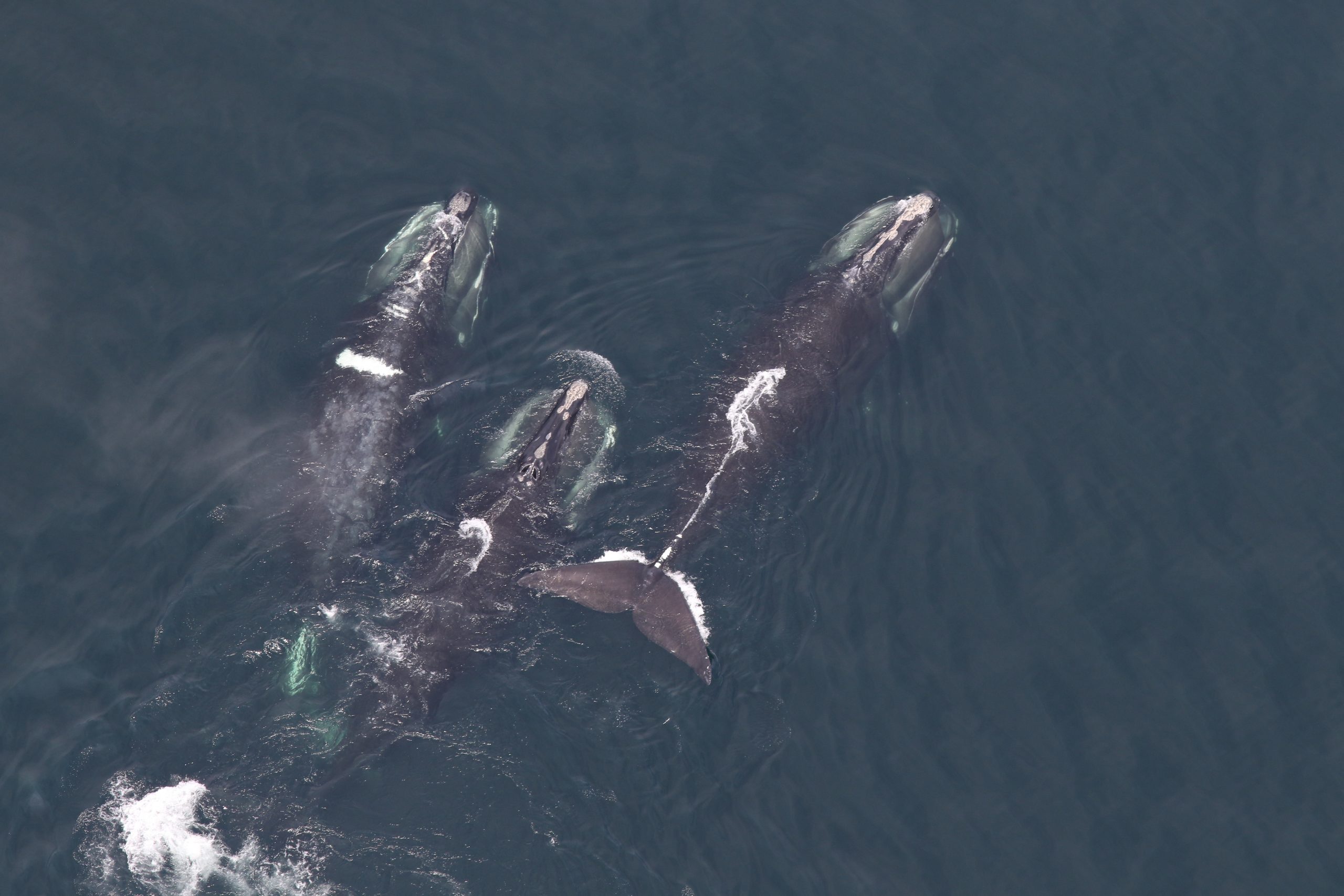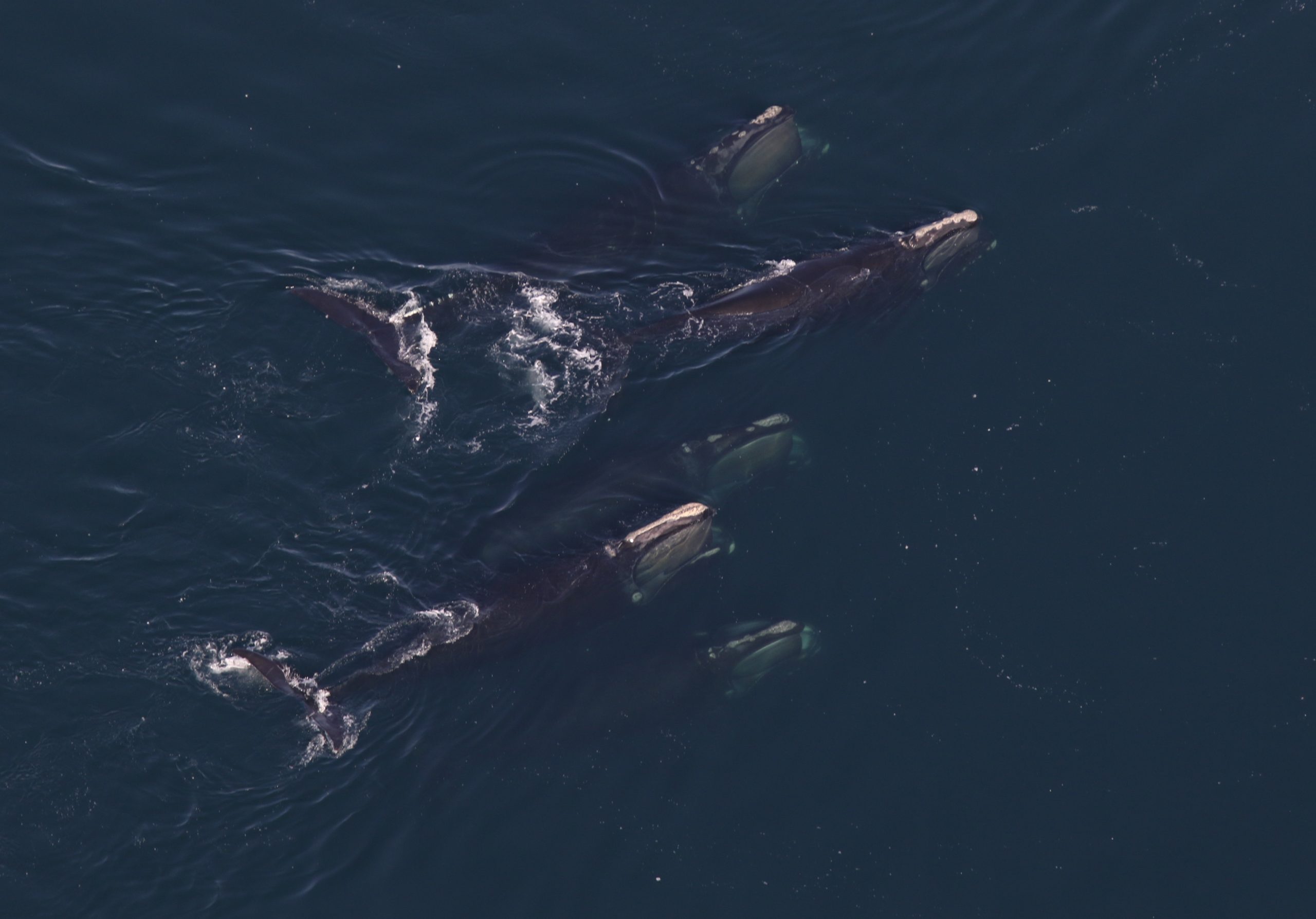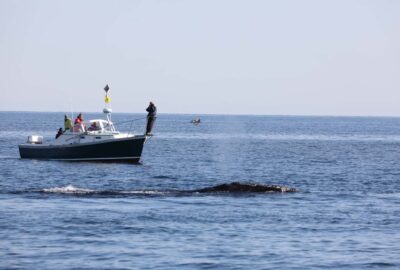New Study Shows Climate Change Impacts on Whale Habitat Use
By New England Aquarium on Thursday, June 09, 2022


By
The migrations and feeding patterns of land, air, and sea animals are changing due to climate change. Bears hibernate for less time, if at all, birds fly south earlier, and more than 80% of earth’s marine life is migrating to different places and changing their breeding and feeding patterns due to warming waters, according to the National Environmental Education Foundation. The study of these reoccurring events, known as phenology, suggests that climate change affects the ocean’s inhabitants at a rate ten times faster than land animals.
To find out how climate change affects marine animals’ cyclical or phenological events here in New England, a group of scientists led by Dan Pendleton, a research scientist at the New England Aquarium’s Anderson Cabot Center for Ocean Life, reviewed more than two decades of data. The researchers found that the habitat use of large whale species, including the critically endangered North Atlantic Right Whale, has changed significantly in the rapidly-warming Gulf of Maine.
The Global Change Biology study points out that right whales and humpback whales’ peak use of Cape Cod Bay had shifted almost three weeks later. Changes in the timing of whale habitat use were related to when spring starts, which has been changing due to climate change. The study also revealed that the level of right whale habitat use in Cape Cod Bay has increased significantly during the springtime. The study demonstrates that highly migratory marine mammals can and do adapt the timing of their habitat use in response to climate-driven changes in their environment.

Sea surface and bottom temperatures in the Gulf of Maine have increased three times faster than the global average over recent decades, making it a unique ecosystem to study phenological and biological responses to climate change, such as animal migration times, peaks in productivity, and breeding. Warming has been most substantial during the summer and autumn seasons, resulting in longer summers and shorter winters, leading to changes in whales’ food supply throughout the Gulf of Maine.
The study involved researchers from the Aquarium, UMass Amherst, the USGS Northeast Climate Adaptation Science Center, the Center for Coastal Studies, UCLA, National Marine Fisheries Service, and the Canadian Whale Institute. Scientists gathered data from aerial surveys conducted by the Center for Coastal Studies from 1998 to 2018 and analyzed environmental data such as sea surface temperatures and the dates that signify the start of spring each year. The team used a novel statistical technique to study changes in whale habitat use within and across years, which provided insights into the long-term effects of climate change on whale habitat.
Read the complete study here.



